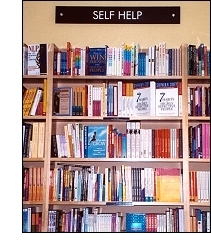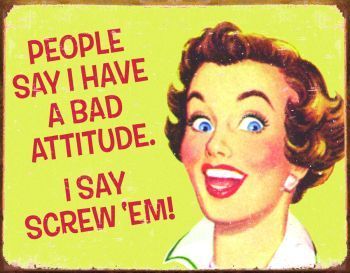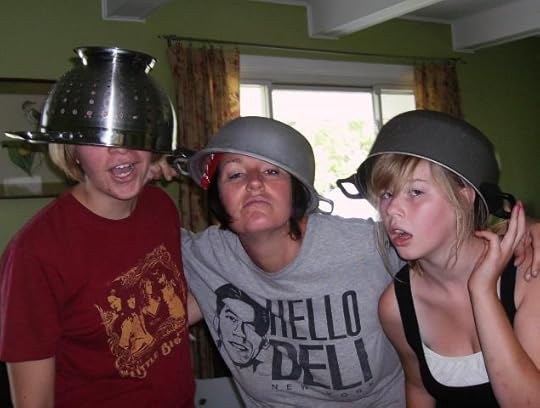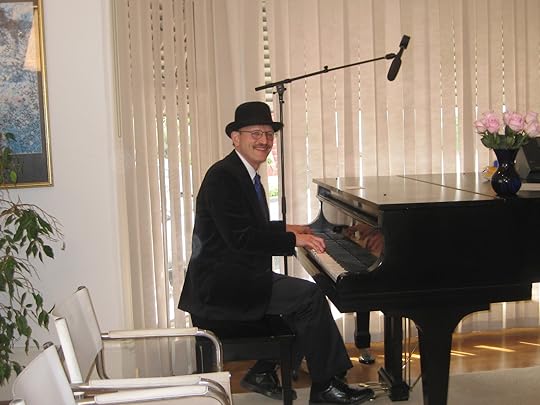Marty Nemko's Blog, page 422
February 7, 2014
How I Invest in Stocks
 I am not a licensed investment adviser and so cannot give financial advice. However, I have, for decades, been a successful investor without any advisers and with minimal effort or stress so I thought you might find it useful to know what I do. As they say, do your own due diligence, for example, consulting a trusted professional adviser before making any investment.
I am not a licensed investment adviser and so cannot give financial advice. However, I have, for decades, been a successful investor without any advisers and with minimal effort or stress so I thought you might find it useful to know what I do. As they say, do your own due diligence, for example, consulting a trusted professional adviser before making any investment. It's very tough even for pros to beat the market so, every time I have an extra $1,000, I don 't try to time the market but simply put the money into a low-cost mutual fund. That gets me diversification at low cost and I automatically end up buying more shares when prices are cheap. That's called dollar-cost averaging.
Among mutual funds, I particularly like the Vanguard All-in-One Funds. They are available in various risk-tolerances or for specific goals (for example, saving for college, retirement in X years) and they automatically rebalance so whether the market is up or down, the fund's investments always match my risk-tolerance. And they are indeed cheap to own--less than 1/5 of 1 percent per year. That's 1/7 of what Vanguard's competitors charge. (Of course it's possible to lose money in all mutual funds and stocks but at least the cost of investing through Vanguard is low.)
Those All-in-One Funds invest mainly in U.S-domiciled large companies. But because those companies are very involved worldwide, an investment in those companies actually is an international one. But because I believe this is China's century, I have invested additional money in the iShares China Large Cap exchange-traded fund (symbol: FXI) which is a market basket of 26 leading China companies, the equivalent of our Dow Jones Industrial Average.
I also periodically buy shares in a couple of individual stocks. My philosophy is to choose a "category killer," the best in its category and where it would be very tough for another company to displace it. So I own shares in Amazon and Toyota. I buy them at the CapitalOne/Sharebuilder brokerage where trades are just $6.95.
I am pretty-much a buy-and-hold investor. Because I'm buying marketbaskets of pretty blue-chip stocks, not volatile high-flyers, I feel okay about holding those stocks until I need the money, often decades. I'm willing to bet, for example, that companies like Amazon and Toyota, which have a big edge over their competitors and attract some of the best and brightest employees, will do well in the long run. I believe that if companies like that do poorly, most companies will. Of course, I could be wrong but not worrying about stock prices' weekly ups and downs certainly lowers the stress of investing.I do look at the prices of my stocks every so often but unless there was a dramatic drop, I'm inclined to sit tight.
I also have a theory, which I have not actually implemented: to short fashion stocks that are fading or faded. For example, on January 22, 2014, I sent a friend a list of stocks I'd short: Abercrombie (ANF), Aeropostale (ARO), American Apparel (AAP), Bebe (BEBE), and Lululemon (LULU). I also added Twitter (TWTR) that day. I also wrote him that if Underarmor (UA) or Facebook (FB) dropped below their 50-day moving average, I'd short them. I haven't calculated but if I had actually shorted them, I estimate I would have made about a 15% profit in just the two weeks since then.
Disclosure: I own the above stocks (not the shorts) and funds but no entity has paid me to endorse any investment.
Published on February 07, 2014 00:41
February 6, 2014
Stop with the Self-Help Books Already!
 For a quarter century now, I've hosted a radio show and written widely for major media outlets, mainly about career issues, As a result, publishers have sent me literally thousands of self-help career-related books. I have scanned, skimmed, or read the vast majority of them.
For a quarter century now, I've hosted a radio show and written widely for major media outlets, mainly about career issues, As a result, publishers have sent me literally thousands of self-help career-related books. I have scanned, skimmed, or read the vast majority of them.As I think about them en toto, it really seems as though publishers keep publishing these books even though they rarely say much that's new and important. Instead, usually:
Their recommendations are mainly just common sense or common knowledge.
They're filled with "real-life" examples that often feel concocted, too pat.
They propose models that oversimplify reality. For example, organizations or people don't usefully distill into just a few types.
Their recommendations are often out of touch with what works in the real world. For example, the sort of person with the intelligence, drive, and marketing ability to write a book, get a major publisher to publish it, and then get it to sell well is too different from the typical reader, who is much less self-efficacious. Yet the author almost invariably assumes, "If it worked for me and my fellow Yalies and others in my high-achieving circle, it can work for you." Wrong.
These books are often padded more than a flat-chested woman wearing a D cup: a handful of ideas embedded in 200 pages of an introduction that rationalizes the need for yet another book on the topic, interspersals of self-promoting information about the author of his/her wonderful business, plus the aforementioned models, anecdotes, and too-pat examples.
Besides, because of the still absurdly long lead time--a year is common--between when an author writes a book's words and when you're likely to buy it, time-sensitive content is obsolete. While most career how-to advice has a millennial half-life, technological advances, new laws, and the workplace fads du jour do change. Books can't keep up with those.
So what's my recommendation to people who want to grow professionally and/or personally?
1. Start with Hey-Joe School. Whatever questions you have, ask "Joe,:" someone in your workplace or a friend. That yields you just-in-time learning, with answers provided by someone who knows you and/or can answer in light of the specific context.
2. Google your question du jour. The top-listed results are the most often linked-to and thus have been proven useful to many people. Odds are that one or more of the top three search results will give you the information you need--and unlike a book, it's more likely up-to-date. Plus, it's free!
3. I'm certainly not anti-book but I believe that reading just these few classic how-to books will give you the biggest bang for your self-development time:
The Seven Habits of Highly Effective People
How to Win Friends and Influence People
The Millionaire Next Door
Good to Great
How to Stop Worrying and Start Living
And if I may be allowed the hubris of recommending one of my books:
How to Do Life: What They Didn't Teach You in School.
I also encourage you to look for books on your specific career. Often particularly useful is a book that consists of a chapter written by a different practitioner in the field. For example, The Call of Nursing: Stories from the Front Lines of Health Care consists of 23 varied nurses' candid self-reports of what their career is like.
4. Beyond those books, which most people will find worth reading cover-to-cover, I recommend reading the Amazon reader reviews of any other books that strike you as potentially interesting. Those reviews are listed in order: from most to least helpful to other readers. Usually, a book's major ideas are presented in the first few reviews. If reading those reviews makes you lust for more, then, good, buy that book. But before you decide to read it cover-to-cover, start by reading the summary chapter. It's usually the first or last one. That often is all that's time-effective to read. Still want more? Then skim one or more other chapters. Still want more? Then, of course, read those chapters or even the entire book.
5. Finally, outside the self-help genre, if you enjoy reading, a biography can be both instructive and inspiring. Here are a few modern classics:
The Bully Pulpit by Doris Kearns Goodwin
The Last Lion by William Manchester
Autobiography by Moandas Gandhi
Eleanor Roosevelt by J. William Youngs
Coretta Scott by Nitozake Shange
Thomas Jefferson by Jon Meacham.
I.M Pei by Jill Rubulcaba
John Adams by David McCullough
Benjamin Franklin by Walter Isaacson
As usual, your questions and comments are more than welcome.
Published on February 06, 2014 17:08
February 5, 2014
Why I Worry: Reasons for Pessimism
 I know it serves no purpose to worry about what you can't control, but I can't help it.
I know it serves no purpose to worry about what you can't control, but I can't help it.I worry about terrorism. Just a few examples: mutated smallpox released in an airport lobby, hacking the U.S. Treasury, a reservoir poisoned with a communicable pathogen, a suicide bomber detonating a nuke from his truck in Times Square or near a major power station.
I worry there won't be enough work to go around. Ever more onerous costs of employing an American will accelerate use of technology and offshoring to replace Americans.
I worry that despite 75 years of massive effort and multi-trillion-dollar spending on education and job training, the achievement gap remains as wide as ever. And as ever more jobs require ever more reasoning and technical skills, I fear the achievement gap will expand yet further.
I worry about Americans' health care The system is already overwhelmed, killing 440,000 patients due to medical errors every year. Add millions more people, mainly low-paying, and we're all at literally grave risk.
I worry about a country that can't restrain itself from spending more than it has, no matter how big its debt nor how fast that debt is growing. Eventually it will come back to haunt us: perhaps the U.S. owned by China, perhaps wildly inflating dollars, rampant poverty. I'm not smart enough to know what will happen. I do know that massive debt is a house of cards.
I worry that the least intelligent people have the most babies.
I worry about dying--usually painful, protracted, ending in nothingness.
I worry I'm not as savvy as I need to be as a counselor. I try soooh hard with every client yet too many don't end up successful.
I worry that I'm not a good enough husband.
I worry that all my books, articles, blog posts, and tweets won't have made enough of a difference.
I wish I could be more optimistic and where that's not rational, that I could anesthetize myself with fun, religion, etc. Alas, I can't.
Published on February 05, 2014 21:50
February 3, 2014
In Defense of Employers and Business Owners
 Most articles on the workplace advocate for the employee rather than the employer. Indeed, bosses are often portrayed as clueless, dishonest, and/or lazy.
Most articles on the workplace advocate for the employee rather than the employer. Indeed, bosses are often portrayed as clueless, dishonest, and/or lazy. Yet I typically find myself siding with bosses and employers over workers.
Of course, that makes me unpopular with most readers, if only because there are more workers than bosses and business owners. But there's a reason I tend to side with the higher-ups: I believe in championing merit over egalitarianism.
Of course, some bosses get promoted undeservedly but, on average, they're smarter, harder working, more of a self-starter and lower-maintenance. Most business owners take far more risk and work far longer hours than do most of their workers. And they create jobs.
True, there are a few zillionaire CEOs, whom, if only for symbolic effect, probably should be taxed further. But obscene-earning executives are but the tiniest sliver of the manager/executive pie. Most managers, per hour, don't make much more than do worker bees. And whatever moderate extra pay they get is fair in light of management's extra responsibility, skills and degrees, and yes that, on average, they're smarter. Plus, few bosses expect to work just 40 hours a week. And when they work longer, unlike workers, they don't get a penny of overtime.
I feel even more for the boss and business owner when I read studies of millions of workers stealing from their employer in various ways. I'm not talking here about taking pencils or even a laptop. I'm talking more expensive stealing. For example, large percentages of workers, on company time, play on Facebook, Amazon, and sports sites for hours every DAY, take sick days when they're not sick, and knowingly making false claims to get undeserved big money from the company or taxpayer. It's impossible to measure the percentage of false and exaggerated claims but it's instructive that employee lawsuits have, from 1989-2009, the latest year measured, increased 400%(!)
So when workers demand more "rights," I don't feel inclined to join the sea of journalists who--in my mind, thoughtlessly--abandon even a pretense of neutrality in favor of trying to get workers what they want, even if that's, net, unfair to bosses and business owners.
Journalists' linchpin principle should not be to advocate for the little guy. It should be to advocate for merit. Ultimately, that will do the most good.
Published on February 03, 2014 20:56
The Case Against Legalizing Marijuana
 Why is the media unabashedly promoting the legalization of marijuana yet wringing its hands over the increase in heroin use, at least for the first news cycle after Phillip Seymour Hoffman died with a heroin needle in his vein?
Why is the media unabashedly promoting the legalization of marijuana yet wringing its hands over the increase in heroin use, at least for the first news cycle after Phillip Seymour Hoffman died with a heroin needle in his vein?Is it that heroin is that much more dangerous? In fact, many, many more lives have been ruined as the result of marijuana addiction. And in countries in which pot became legalized, use increased dramatically. For example, after marijuana became legal in the Netherlands, use among 18-20 year olds nearly tripled.
And lest you think I overestimate pot's dangers, see THIS.
The last thing the U.S. student body and workforce needs is to be less motivated and more memory-impaired and prone to serious cardiovascular disease, cancer, and vehicle accidents and the resultant mayhem and death.
But you claim, "Legalization will eliminate the black market." Think again, dude. Already in Colorado, because marijuana is taxed at 29 percent, a black market is already burgeoning, in which you can buy pot for 29% less. And as with all sin taxes, you can bet the tax rate will only go upward from 29%. For example, in most states, the taxes (federal, state, and sales) on a pack of cigarettes exceeds 100%!.) Of course, the higher the tax rate on pot, the bigger the black market. So all legalization does is expand the number of places that people can buy your memory-impairing, motivation-killing, cancer/heart-disease-causing drug.
But what about for medicinal use? Marijuana is available in capsule form by prescription. No need to make it available through "pot dispensaries." Everyone knows the "medical marijuana" argument is a sham.
I've heard potheads then think they've got me by asking, "Hey dude, would you outlaw alcohol?" Yes, I would. Alcohol causes harm wildly in excess of its benefits. Of course, the perfect is the enemy of the good, and a black market would arise just as in Prohibition but, net, there would be less use and thus less devastation of humankind.
Our Socratic pothead may then try, "Next you're going to want to outlaw ice cream?!" The risk/benefit of ice cream is much better than for pot.
What about the libertarian argument that people should be able to do what they want as long as it doesn't harm others? Well, pot harms everyone: the user, his or her family, employer, the drivers and pedestrians who are in accidents because of the slow-reflexed, often glacial-speed driving pothead. How often do you see people driving extremely slowly on the freeway? Yes, some of them are old people who should have their licenses revoked. Others are new drivers. But I'd guess that a lot of them are zoning out while high on pot and other drugs.
And then there's the opportunity cost. If pot and alcohol were not as readily available, more people, although certainly not everyone, would be more likely to pursue one of the infinite number of more rewarding, less harmful recreations: from learning to writing to mentoring to painting to befriending.
Pot should be illegal and if our legislators cared about us, they'd make alcohol and tobacco illegal too.
Care to disagree?
Published on February 03, 2014 19:41
An Ultra-Simple Approach to Small Business Recordkeeping
 Many one-person businesses or people contemplating starting a business are daunted by the bookkeeping and tax preparation.
Many one-person businesses or people contemplating starting a business are daunted by the bookkeeping and tax preparation.OF course, you could outsource to an accountant and/or use software such as Quickbooks, but I use a system that very easily, at no cost, enables me to adequately keep track of things. It won't work for everyone but perhaps some or all of it might help you:
1. To avoid paperwork and trying to collect outstanding bills, I do no billing. My by-phone and Skype clients get charged by credit card or, for my international clients, by PayPal. My in-person clients pay at the end of the session, almost always by check.
2. I record credit card payments on a 3x3 slip of paper from a standard memo cube and put it in a standard legal envelope marked "credit card receipts."
3. I record my clients' and other payers' check or cash payments in a word-processing file called "payments." At the top of that file, it says "DUE." Below that, "PAID." After the client leaves, I simply put their name and the amount paid in the PAID section. In the rare case when an in-person client forgets to bring a check, I'll accept their Visa or MasterCard. At the end of the year, I head a new page in that file with the new year, e.g., 2014.
4. At the end of the year, to calculate my annual gross income, I simply add up all the payments in the envelope plus those on the PAID list.
5. Throughout the year, I simply dump all tax-deductible receipts into a cardboard box, supplemented by my credit card statements and checkbook register. When it comes time to do my taxes, I dump the box onto the bed in the spare bedroom and sort the expenses according to which tax-return category it belongs in.
6. I enter my income and expenses into TurboTax and file my tax return. I used to send a draft of my return to an accountant for review but after a number of years of his saying he could find nothing that needed changing, I no longer even do that.
For me at least, that makes record-keeping and taxpaying pretty darn painless.
Published on February 03, 2014 16:44
Video: How to Play the Piano By Ear: a six-minute lesson may teach you all you need to know
In a recent post, I presented a way to learn how to play the piano by ear. A reader asked if I'd make a video demonstrating it. Here it is:
Published on February 03, 2014 16:05
How I Start and End a Counseling Session
 Much has been written about how to conduct a counseling session. Less has been written about what should immediately precede and follow a session. So I thought I'd share what do. Some of it is just common sense but my intuition is that you may still find it useful.
Much has been written about how to conduct a counseling session. Less has been written about what should immediately precede and follow a session. So I thought I'd share what do. Some of it is just common sense but my intuition is that you may still find it useful.Before the session
I have many clients whom I work with by phone or Skype Video, so obviously, the first few points won't pertain to them.
When the doorbell rings that lets me know the client has let him/herself into the waiting room:
1. I read my notes from the client's previous session(s.) That way the client is fresh in my mind.
2. If I'm not in great spirits, as I'm walking downstairs to greet the client, I remind myself to get in gear.
3. In greeting the client, I make clear I'm glad to see him or her: I smile, look them in the eye and say something such as "Good to see you again, Mary," and then a bit of small talk. For example, if during the previous session, s/he had mentioned her dog Woofie," I might ask, "How's Woofie doing?"
Speaking of dogs, my dog Einstein no doubt greeted the client upon entering. So perhaps my most common small talk is to say something like, "Did Einstein welcome you appropriately?"
I keep my small talk very brief to give the client room to take the small talk in whatever direction s/he likes. That continues as we walk upstairs to my office.
Throughout this pre-session talk, I try to observe and infer the client's state of mind: happy, sad, phlegmatic, excited, etc. That can inform my first substantive question, for example, "You seem happier today. Great. What's up?"
If it's the first session, I try to take note of the sort of first impression the client is making on me. That may well be the sort of impression s/he will make at a job interview or on the job. If I sense a problem---for example, poor eye contact, low energy, an angry demeanor, whatever---I usually won't mention it at that point but make a note to raise the issue at an appropriate time.
I'll usually ask the client if s/he wants something to drink. If it's coffee, I'll usually make it fresh right there with the client watching. That's not just so that the coffee is fresh--It allows a couple of minutes more of informality, which can be revealing. People may be different in that informal setting than in the formal counseling session. I'm more effective if I can see them in that more natural circumstance.
4. If it's the first session, I point to the sofa and say something like, "Make yourself at home." I try to strike the balance in word and tone between being informal and therefore relaxing and being professional. Einstein adds a measure of informality and stress reduction because he'll usually jump on the sofa and sidle up and even kiss the client. I ask, "Would you like him down?" Most clients say they're happy having him up there. Einstein is a fabulous co-counselor/stress reducer.
5. If it's a first-time client, I start by saying, "I'd like to make a recording of the session for you. Clients find it valuable to listen again to sessions but I didn't want to do that without your permission. Is that okay? And do you want to record it on your smartphone, for me to make an mp3, which I'll email you, or even an old-fashioned audiocassette?"
After starting the recording, if it's the first session, I usually then say something like, "I've just had the pleasure of spending the last hour or so reading and meditating on the new-client questionnaire you sent me. Great, and I have a bunch of questions I'd like to ask you." They usually say, "Great," and we're off and running.
If it's not the first session, my typical starting statement is something like, "So in light of our last session, what have you been thinking or perhaps doing?"
I take notes during sessions so I can devote all my mental energy to listening and thinking what to say rather than to being sure I remember all that's important.
The End of a Session and Afterwards
I usually ask if the client wants to summarize the session or prefers that I summarize. After that summary, I typically ask, "Okay, what homework assignment would you like to give yourself?" I add my input where appropriate. Then I ask, "If we were in Vegas, would you give at least 5-to-1 odds you'd do the assignment?" If the client says no, I ask why. That usually reveals a problem we can usually fix: alter the assignment, explain it better, set a fixed schedule to do the assignment, find someone to be accountable to (including emailing me every night,) what to do if reaching a roadblock, etc.
I'll often ask the client to take notes while listening to the session recording, then print out a copy and keep it on their desk, and to email me a copy of the notes, to be used as a springboard for the next session.
Then, consistent with honesty, I try to end on an upbeat note, for example, "I think we're off to a good start. It'll be interesting to see what you get from doing that homework assignment."
After the client leaves, I immediately take notes on the client.
Published on February 03, 2014 12:39
Three Career Questions I'm Often Asked
 Here are my answers to three of the more common questions I get from readers and callers to my radio program:
Here are my answers to three of the more common questions I get from readers and callers to my radio program:What should I major in?
Of course, it varies with the individual but here are a couple of my not-widely-held beliefs:
Unless you really are a science/math/computer whiz, I recommend not majoring in those. They're hard, not that interesting to most people, and these majors contain some very smart, hard-working students bringing down the curve. Also, if you end up switching majors, you'll find most of what you learned irrelevant to life or career.
A major I consider underrated and of wide benefit to one's career and life is theatre. Studying and being involved in plays (whether as reader, actor, student director, stage manager, etc) gets you exposed, again and again, to pieces of literature that focus on life's key issues and exposes you to great language. That repeated exposure is required it to be transformative for you. A theatre major is more likely than most to make you a wiser human being. And if you spend some time on stage, you'll gain in poise, an important and underrated attribute. Most people also find the theatre major fun.
What's the best career?
Again, of course, it depends on the person but I do have a few favorites.
Right at the top is optometrist. It offers prestige, a six-figure income, low stress, you succeed with nearly every patient, and there rarely are night emergency calls. Optometry is not offshoreable and you won't get replaced by a robot. The training time isn't inordinate: four years after your bachelor's degree, or at some colleges, you can get a bachelor's degree and your Doctor of Optometry degree in seven.
Haircutter always scores near the top of most job satisfaction surveys. Again, you succeed with nearly every customer, and you're dealing with something positive--appearance. Plus, you get the chance to develop ongoing relationships with customers: After all, you get to chat with them every few weeks. Haircutting is another career that won't get offshored or automated.
Clergy. You get to do unmitigated do-gooding and have a very varied workweek: from counseling the unhappy to preparing and delivering a sermon to planning for the church/synagogue's future. Pay sometimes is bad but not always. This is another career that won't the offshored or automated.
How do you get promoted or at least reduce your risk of getting laid off?
Try to get to work for a boss who's ethical and a star or up-and-comer. You'll both learn a lot and such a boss is likely to get increasing responsibility, which could create new opportunities for you. Try to make your boss's life easier. You might even periodically ask your boss that explicitly: "How could I make your life easier?" Keep your antennae out for priority areas in the organization and in your field and get more skilled in that. You can't overtly brag but subtly try to get it known that you're a person who has good ideas and does exceptional work. For example, instead of just giving your best idea to the boss, you might bring it up email to others "for feedback." Try to be low-maintenance and well-liked by most people. Sometimes, there really is too little opportunity for advancement. If so, resist the temptation to stay put and, at least, subtly, confidentially, put some feelers out.
Published on February 03, 2014 00:35
February 1, 2014
The Art of Accompanying on the Piano

I've had the privilege of accompanying dozens of outstanding professional singers and so I thought I'd share my core principles of accompanying.
If you're an accompanist, you might find these ideas useful and if you're an audience member, reading this may help you additionally appreciate listening to singing performances, whether live or recorded.
1. I never simply play what's written in the chart/sheet music. That's just the barebones. Accompanying is the art of creating the perfect support/surround-sound for that singer. I think of myself as a one-person orchestra. And thanks to my Korg SP-250 keyboard, indeed, I can sound quite full and varied. While sometimes a traditional piano sound is precisely the right choice, now there often are better options.
If I don't already know the song, yes I'll look at the sheet music and perhaps listen to the original recording of it, but I treat that as only the starting place. I will expand on it, playing by ear, what feels right.
The singer and I develop a singing and performance plan for the song with the goal of making it better than the best recording we can find, capitalizing on that singer's strengths. I often suggest that the singer give the song an arc: for example, from slow/simple to big/dramatic back to slow simple. I also suggest we choreograph it, sometimes down to her every movement.
2. Many songs begin with an ad-lib section. I always let the singer know that s/he needs to feel free to be as free as she wants with the tempo, and can vary that from performance to performance, and to be reassured that I will, if it's appropriate as it usually is, come in the nanosecond after she hits the note. To the audience, it will sound like I intuitively know when to come in but it's really that I'm just listening my butt off.
3. Throughout the song, I'm vigilant to provide the appropriate amount of support. I'm always trying to listen as deeply as I can to every note. If what she's singing requires simple playing, I accompany simply. If big, lush chords are required, I do that. If it needs to be more energetic, I'll play more rhythmically or jazzy.
I pay special attention to the last note in a phrase. Those can be her most impressive moments and I make sure I'm not upstaging her yet not diminishing that note's power by playing too wimpily.
4. Volume is critical. Too soft and you're not providing the support the singer needs, too loud and you take away from her. Often, you can't tell whether you're too loud or too soft. So if we have a rehearsal at the venue or right before the audience enters, I ask a venue employee to move around the room while I accompany the singer doing a loud, medium, and soft passage. As she walks around, I ask her to raise her palm if I should play louder and lower her palm if I should play softer.
5. It's often conventional for the singer to expect me to play an eight-bar solo during the bridge (the material between choruses.) Unless s/he needs that break to regain her breath or energy, I recommend against it. It takes attention away from her, reducing the power of the lyrics and connection with the audience. If s/he does want me to play a solo, yes, that's the time for me to play my ass off but never so much that when she comes back to sing, I've given her a hard act to follow.
6. Note that key to doing all this is a suppression of my ego. When you are accompanying, you are, pardon the pun, playing second fiddle. It's still high art and a most worthy activity. Indeed I find accompanying a great singer as rewarding as playing solo.
HERE is a video of me accompanying Jeffrie Givens at a nightclub.
HERE is a video of me accompanying Taylor Bartolucci and James Sasser on my NPR-San Francisco radio show. .
Published on February 01, 2014 16:56
Marty Nemko's Blog
- Marty Nemko's profile
- 4 followers
Marty Nemko isn't a Goodreads Author
(yet),
but they
do have a blog,
so here are some recent posts imported from
their feed.



